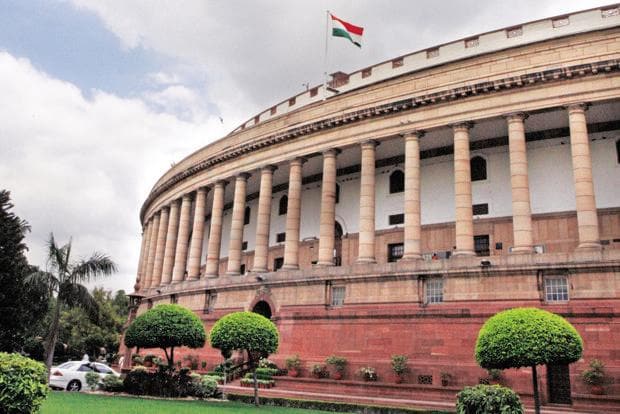The latest round of Rajya Sabha polls, touching several states, saw the elections for new members to the Upper House of Parliament. The results were closely watched for the suspense it generated in some northern states due to attempts at cross-voting. Cross-voting did happen in Gujarat and Madhya Pradesh, helping the BJP win a few additional seats than what its original Assembly strengths could have thrown up. The RS elections were held in 8 States and the number of seats up for grabs was 19. Out of this, the BJP got 8, Congress 4, JMM 1, YSR 4 and in the North East regional parties like the Mizo National Front got 1, while Meghalaya National People’s Party of Chief Minister Sangma got 1.
Despite this, the BJP is far from winning a majority in the Upper House, though the NDA alliance it leads has by now about 100 seats in the 242-member house. BJP’s traditional allies outside of the NDA could, to an extent only, make up for the rest so as to pass legislations without hindrance, as has been the case in recent times. BJP has 86 seats in the RS now, against a diminishing strength of 41 for the Congress. But, this offers little comfort to the NDA. The ruling alliance’s failure to gain the upper hand in the RS has to do with the sizeable Congress presence in some state Assemblies, backed also by the victory of non-BJP, non-Congress regional parties in states in recent years. This is making it difficult for the BJP-NDA to realise their ambition of gaining a majority in Rajya Sabha even in PM Modi’s second term.
The first Modi term since 2014 saw serious ruptures in the BJP-NDA plans to get Bills passed in the Rajya Sabha. The Congress and the TMC, among principal Opposition, put up stiff resistance in the Upper House and blocked several legislations even as these Bills got the nod of the Lok Sabha. The GST Bill remained in the freezer for years, after which, as a last resort, the government passed it as a finance Bill requiring no nod from the Upper House. The melee that was so evident in the functioning of the Rajya Sabha as a result of the weak strength of the BJP-NDA for the past few years has been tamed, to an extent. This may primarily be because of a progressive rise in the strength of the ruling alliance.
Alongside, however, the NDA took hits in the form of desertion of the Telugu Desam Party of Nara Chandrababu Naidu from Andhra Pradesh and the Shiv Sena from Maharashtra, two strong forces among the regional entities. They could still be depended on selective support. The BJD is extending issue-based support to the NDA, as it did with the UPA too in the past, and its support too cannot be taken for granted in all situations. With more Assemblies that would go for state polls in the near future, there is little to show that the BJP-NDA can ever gain a majority in the Upper House, despite its heavy strength of 300 plus in the lower house. This is making the Union government function in an arbitrary manner, with resorting to passing bills under the guise of finance-related legislation. The promulgation and extension of crucial Acts under the cloak of ordinances also has helped in vitiating the parliamentary process. The precedents being set now may continue to haunt Indian democracy for a long time in the future.
Overall, the BJP is proving that it is losing its hold on state after state. The party wins votes in LS polls, obviously as the Congress party failed to remain fighting fit and there were perceptions that there was no strong alternative to Modi as PM. Fact is also that the organisational strength of the BJP is not strong in several states. The party banks on either the RSS or the PM’s campaigns to win polls. This often does not work in state polls.
The COVID-19 pandemic, the lockdown, the Chinese aggression in Ladakh are new factors that have come up, and it remains to be seen how the PM and the ruling entity measures up to the expectations of the people. While the BJP and Modi can have the luxury of four more years to rule from the Centre, the Assembly polls could see more of BJP reverses in future. This could also mean the BJP-NDA will have more difficulty balancing equations in Rajya Sabha, even as this is crucial for the party to implement its governance agenda.
